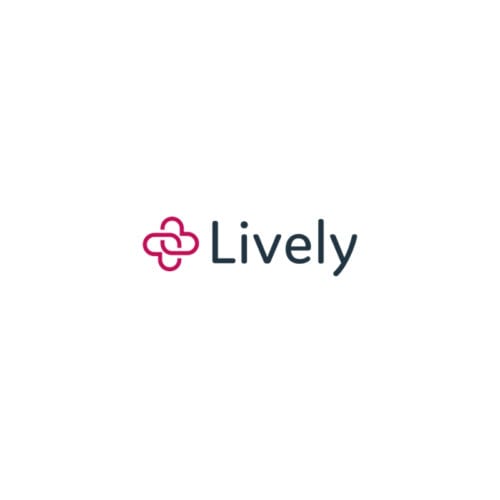If you’ve received a windfall of $200k or have been saving and now have a nice nest egg to invest, it’s important to know how to invest $200k.
Haphazardly investing it or throwing it in a savings account isn’t enough. You must consider your goals, risk tolerance, and investment knowledge to ensure your balance grows, rather than the other way around.
While no one can guarantee you’ll grow your $200k to $1 million or more, with the right strategy and effort, it’s possible to grow your balance much higher than before.
How to Invest $200,000
Here are 9 great ways to invest $200k:
- Work with a Financial Advisor
- Invest in the Stock Market
- Invest with a Robo Advisor
- Invest in Real Estate
- Invest in REITs
- Invest in Your Personal Real Estate
- Invest in Cryptocurrency
- Invest in a HYSA
- Invest in a Health Savings Account
1. Work with a Financial Advisor
When you invest a larger sum of money, like $200,000, consulting with an expert could be well worth your time. Financial advisors can provide expert guidance to help you reach your financial goals.
They can assist you with identifying your risk tolerance and making informed investment choices that align with your financial goals. Knowing you’re working with an expert can provide peace of mind as you make investment decisions and manage your portfolio.
Our top pick is J.P. Morgan’s Personal Advisors Service, one of the most reputable companies in the financial industry. The service gives you access to a team of financial advisors who work with you to create a tailored financial plan based on your goals.
The service includes selecting expertly-curated portfolios to invest your funds and rebalancing your accounts to keep you on track. You also get ongoing support, with annual check-ins and access to your advisors by phone or video call for advice. J.P. Morgan currently has a promotion that offers the service free for six months for a limited time.
INVESTMENT AND INSURANCE PRODUCTS ARE: NOT A DEPOSIT • NOT FDIC INSURED • NO BANK GUARANTEE • MAY LOSE VALUE2. Invest in the Stock Market
Savvy investors know that $200,000 will grow exponentially faster in the market than it would in your savings account. By investing a large portion of your money in stocks, bonds, mutual funds, and ETFs, you can, with good decisions, turn your $200,000 into a much larger amount.
For example, at the stock market’s average rate of return of 10%, let’s say you invest your entire $200,000 into the market and make an annual contribution of just $1,000. After 30 years you would have over $3.5 million in the bank.
More strategic investments could generate even more, setting you and your family up for a retirement free from financial worry.
INVESTMENT AND INSURANCE PRODUCTS ARE: NOT A DEPOSIT • NOT FDIC INSURED • NO BANK GUARANTEE • MAY LOSE VALUE3. Robo-Advisor
A robo-advisor is an automated investing service that uses algorithms to allocate your investments.
Two of the most popular robo-advisors are Betterment and Wealthfront. Thanks to demand from millennials, many leading brokerages also offer robo-advisor accounts.
Some robo-advisor accounts even allow you to take advantage of tax-loss harvesting at certain investment thresholds to make your investing decisions more efficient.
Learn about the top robo advisors.
4. Real Estate
Real estate investing is another possibility when learning how to invest $200k. It’s not for everyone, but here are some reasons why you should at least explore your options.
- It allows you to increase your net worth and diversify your investment portfolio.
- It may offer some nice tax advantages.
For example, if you get a good deal on a rental property, you can renovate it and sell it for a profit. To avoid paying capital gains on your profits, you can conduct a 1031 exchange, allowing you to contribute your profits toward purchasing your next investment property.
You can also generate recurring cash flow by renting your properties to residential or commercial tenants.
Over a 15- or 30-year mortgage, the property’s value may increase, earning you equity or profit. Oftentimes, investors try to sell around the 27.5-year mark when they can no longer write off depreciation on their taxes. At that point, doing a 1031 exchange and diversifying your holdings across several smaller properties might make sense.
5. REITs (Real Estate Investment Trusts)
Not everyone has the resources or desire to manage a property. After all, it can be very expensive and it can require a lot of time unless you hire a management company (which eats into your profits).
As an alternative, many investors choose to invest in real estate investment trusts (REITs) through an online service like Fundrise.
An REIT is a trust that owns and operates real estate investments. You can invest in REITs and receive dividends, just like you would with an index fund. As a result, you can enter the real estate market much easier and more cost-effectively than buying a property outright.
If you are an accredited investor, meaning you earn over $200,000 annually (or if you and your spouse earn over $300,000 combined) consider signing up for CrowdStreet or Yieldstreet. Non-accredited investors can consider Fundrise.
6. Personal Real Estate Holdings
Are you still renting, but considering buying a place?
If so, consider taking roughly 10-20% of your original lump sum of $200,000—or $20,000 to $40,000—and putting it into a down payment on a house, condo, or apartment.
Just remember that if you buy a primary residence, you should keep an extra $10,000 to $20,000 on hand to cover closing fees and expenses (on top of your down payment).
7. Cryptocurrency
Over the last year, cryptocurrency has exploded in popularity. All of a sudden, cryptocurrency is generating attention from mainstream investors and institutions — meaning it should be on your radar, too.
Cryptocurrency is a type of digital currency where transactions are completed and maintained using cryptography. Cryptocurrency is stored in an encrypted, public digital ledger that is both open and tamper-proof.
Some of the leading cryptocurrencies on the market right now include Bitcoin, Ethereum, and Litecoin. However, Bitcoin is the global king of cryptocurrencies, following its 2021 bull run that saw over 300% growth in just a few months. Some analysts predict that one Bitcoin could be worth as much as $100,000 or more.
8. High Yield Savings Account (HYSA)
A savings account is a low-risk, FDIC-insured deposit account available at most traditional and online banks.
For the sake of simplicity, the only savings account you should consider is a high-yield savings account (HYSA). An HYSA is a savings account from an online bank. With an HYSA, you get a variable APY with a much higher interest rate than what you can expect from a traditional bank.
However, remember with an HYSA, there’s a limit to the number of transactions you can make during a monthly cycle, so you can’t treat it like a checking account.
9. Healthcare Savings Account (HSA)
Don’t forget to put money aside for healthcare expenses. If you have a high deductible healthcare plan, consider investing in a healthcare savings account (HSA) so it can grow tax-free like a retirement account.
This means you can grow and invest your funds and use them for qualified healthcare expenses like doctor’s visits and medicine.
How to Invest $200K in the Stock Market
Investing money in the stock market, even if it’s only a small percentage of your $200k, is important. You can diversify your investments and leave the funds to grow long-term. With the average 10-year stock market return of 10% or higher, it makes sense to invest funds for long-term goals, like retirement.
But how do you invest $200k (or less) in the stock market? Here are some quick tips to get you started.
Find an Online Brokerage
Sign up for an online brokerage account to start investing your $200,000 in the stock market.
You can’t go wrong with any of the leading U.S. brokerage institutions, like J.P. Morgan, Vanguard, Schwab, or Fidelity. There are also many top-notch discount brokers, such as E*TRADE and Ally Invest.
Before selecting a platform, look for a provider that offers what you need.
Do you plan to trade stocks frequently? If so, a discount broker that offers a fee-free trading platform might make the most sense.
On the other hand, if you prefer to purchase just one or two ETFs and leave the money there until retirement, you don’t have to focus on commissions as much.
Either way, make sure your choice offers excellent customer service, low-cost or free trades, and an easy-to-use online platform.
TIP: One of our favorite newcomers, moomoo, offers commission-free trades, extended trading windows, 24/7 customer support, and a wealth of data and research tools for stock traders. moomoo has recently enhanced its ‘Cash Sweep’ offering (see our moomoo review for full details), now providing one of the highest yields in the entire brokerage industry at 5.1% return to new users.
Choose the Right Account
After choosing a brokerage, you must decide if you want a taxable and tax-advantaged (retirement) account. Retirement accounts include IRA, Roth IRAs, SEP IRAs, and solo 401Ks. They offer tax advantages either when you contribute or during retirement and are paramount to your long-term investment needs, but you cannot access the funds until you are at least 59 ½ or you will pay a penalty.
Taxable accounts don’t have the same rules as retirement accounts. You can access your funds whenever you need, but you pay taxes at your current tax rate when you realize capital gains by selling an asset.
Diversify Your Investments
A key to learning how to invest $200k in the stock market is understanding how to diversify your investments. Diversification means you don’t put all your money in one asset because if it fails, you lose everything.
Some popular ways to diversify funds include investing in the following assets:
- Stocks
- Bonds
- ETFs
- Mutual funds
- Alternative assets
Frequently Asked Questions
Do you need an emergency fund?
Yes. If you don’t already have a healthy emergency fund ready, this is one of the first bases you should cover. The amount you set aside varies depending on your situation and budget, but most financial experts will advise you to set aside at least 6 months’ worth of expenses. Emergencies can come out of nowhere, so it’s critical to be prepared.
Is $200,000 a lot of money?
Yes, $200,000 is a large amount of money. However, it’s definitely not enough to retire on, and it can go very quickly if you make reckless decisions and aren’t careful about sticking to a budget. If you want to see your money grow to millions when you retire, you must stick to a plan and invest. Otherwise, you could wind up burning through $200,000 in no time at all.
Are Penny Stocks a good investment?
No. Avoid getting lured into this trap and focus on proven investment methods like the ones you learned about above (e.g., stocks, bonds, mutual funds, index funds, ETFs, and real estate).
How Should You Invest $200K?
How you allocate your $200,000 is completely up to you and depends on your lifestyle and investment goals.
Leaving those variables aside, by building a diversified portfolio and investing in proven companies and funds (or in real estate) you’re bound to see success, just like me and so many others.
Keep learning, keep investing, and before you know it you can experience true financial independence.
J.P. Morgan Wealth Management is a business of JPMorgan Chase & Co., which offers investment products and services through J.P. Morgan Securities LLC (“J.P. Morgan”), a registered broker dealer and investment adviser, member FINRA and SIPC. Millennial Money is a publisher of J.P. Morgan, (“Publisher”). The Publisher will receive compensation from J.P. Morgan if you provide contact details to speak with a J.P. Morgan representative. Compensation paid to the Publisher will be up to $500 per completed contact form. Compensation provides an incentive for the Publisher to endorse J.P. Morgan and therefore information, opinions, or referrals are subject to bias. J.P. Morgan and the Publisher are not under common ownership or otherwise related entities, and each are responsible for their own obligations. Investing involves market risk, including possible loss of principal, and there is no guarantee that investment objectives will be achieved.







No comments yet. Add your own